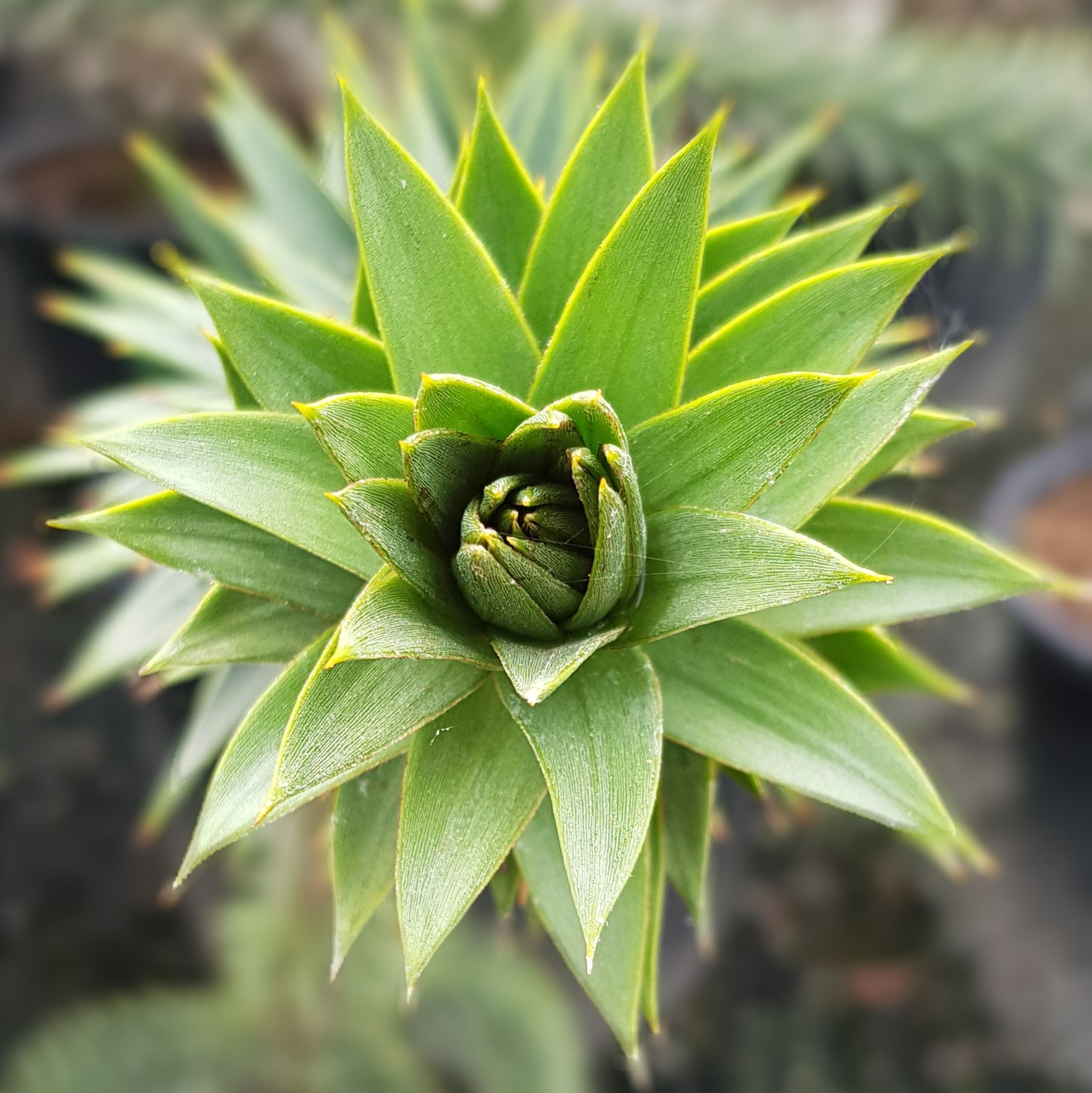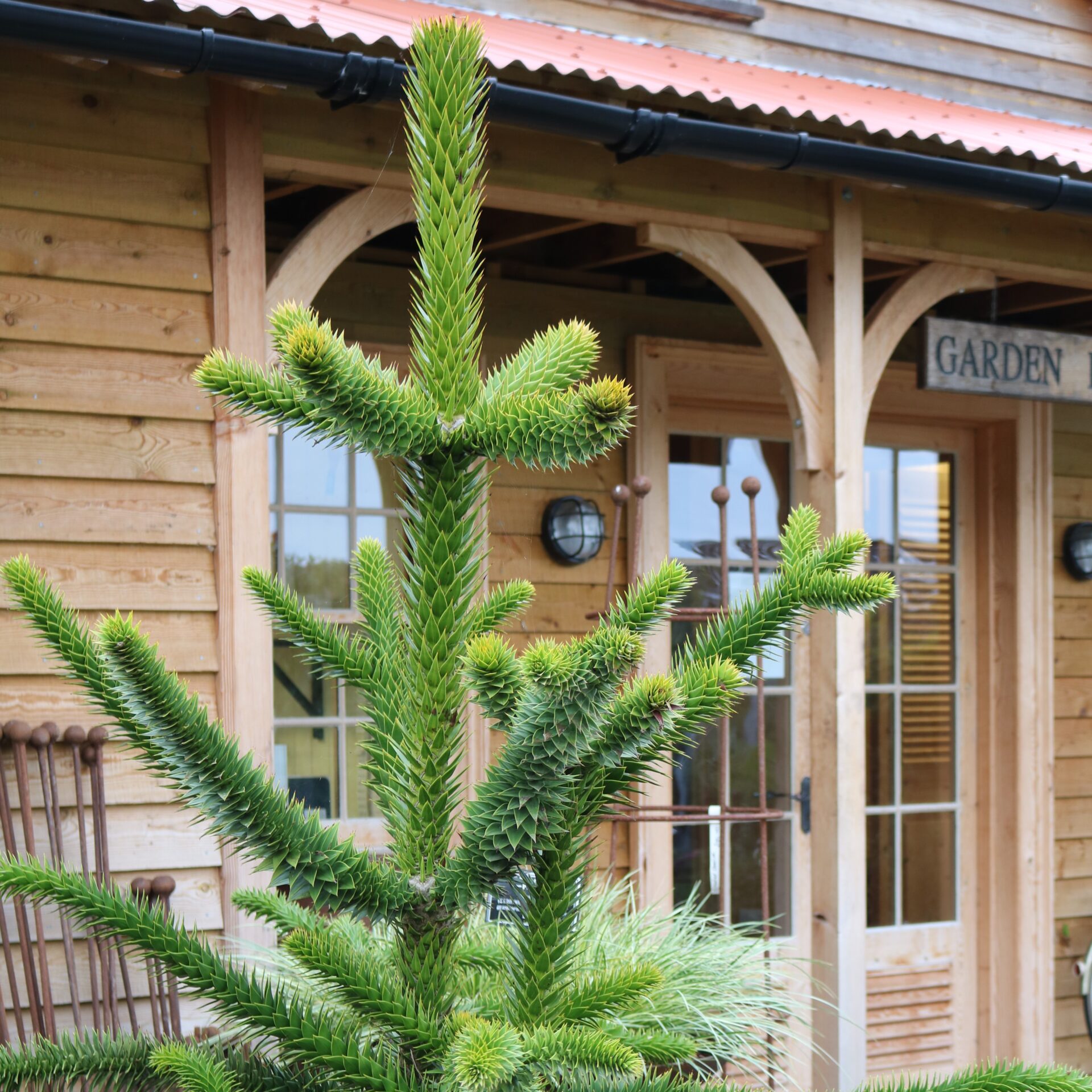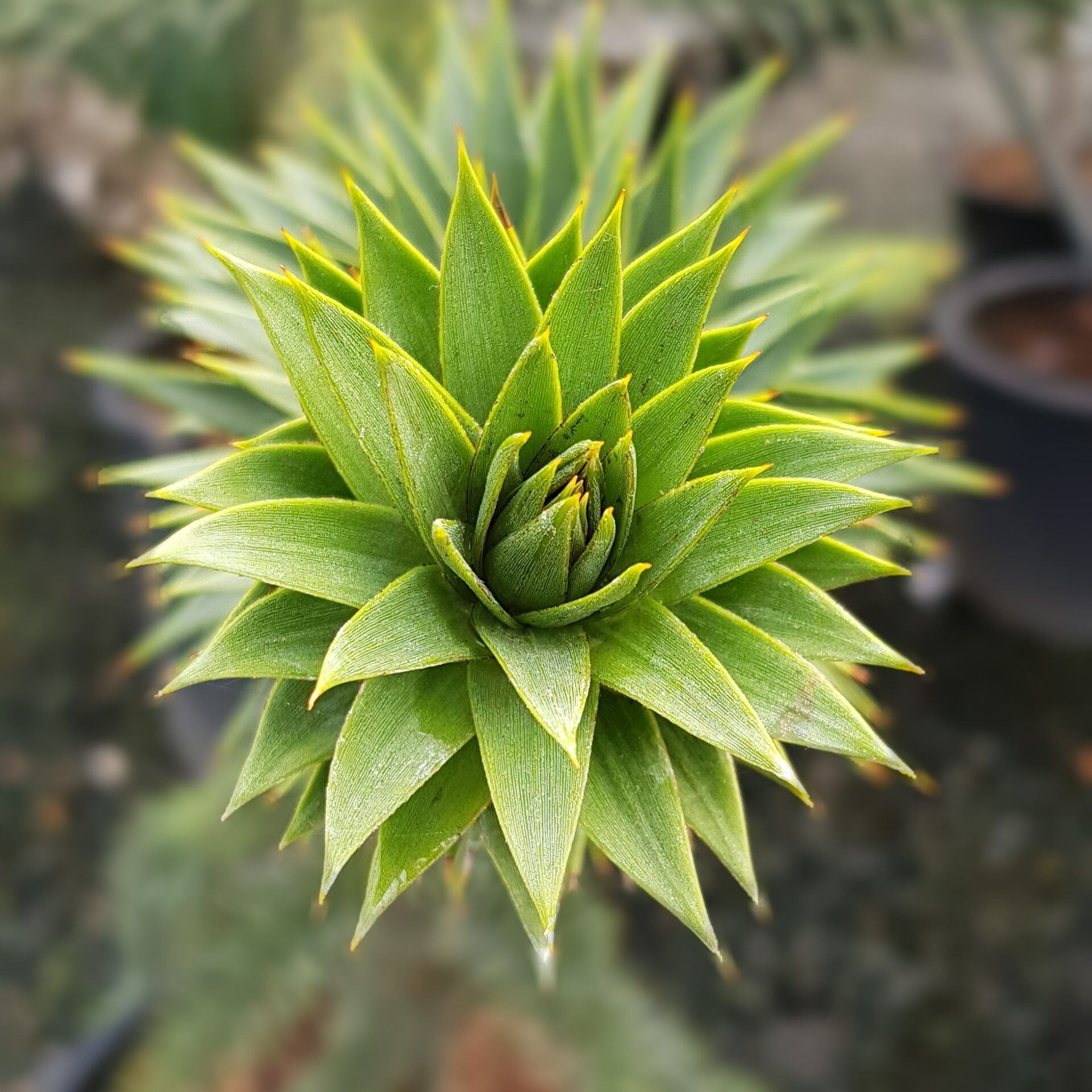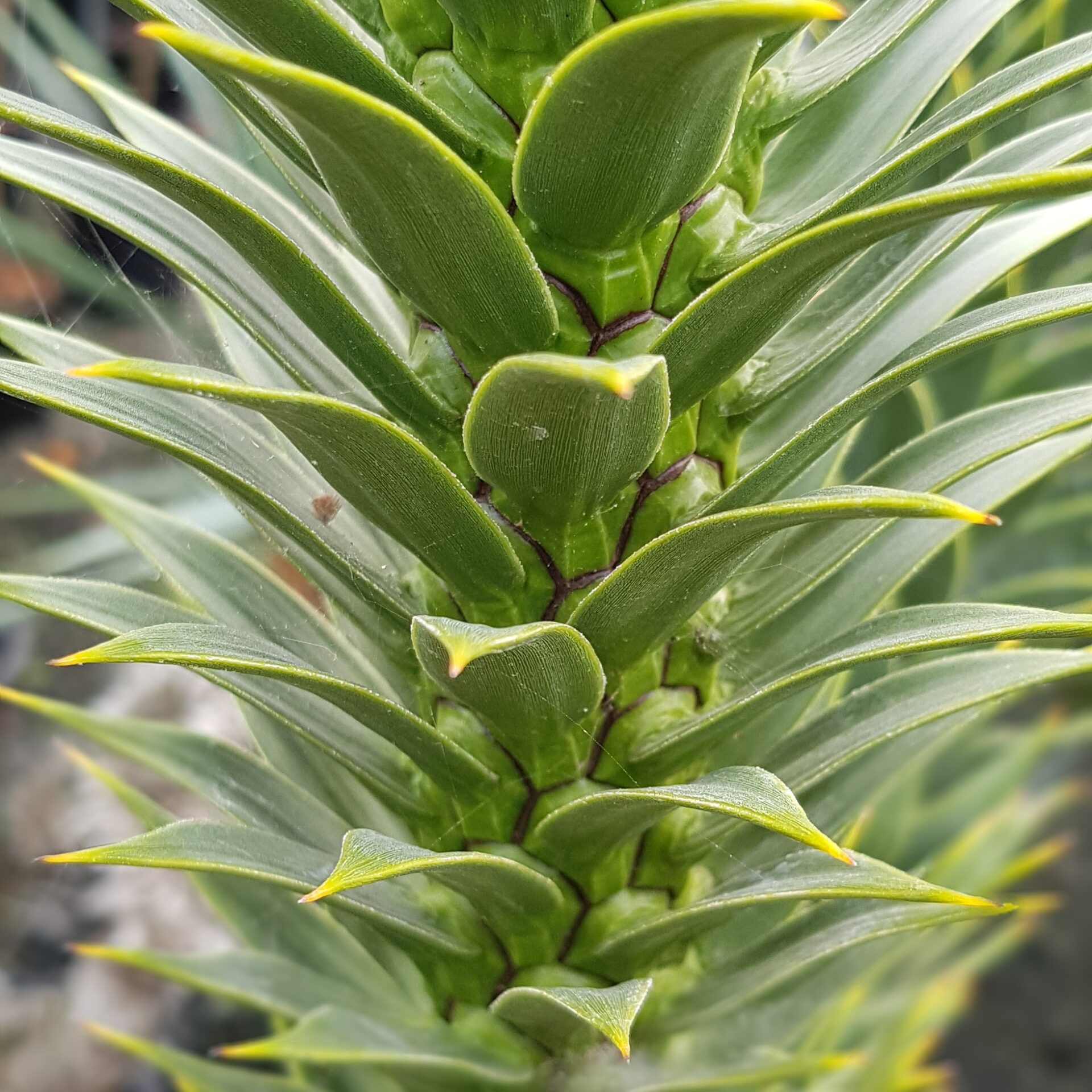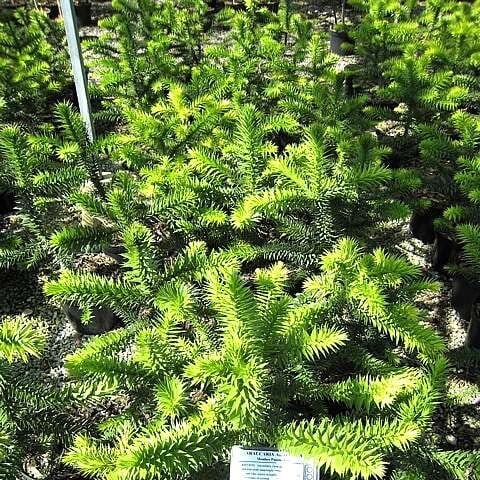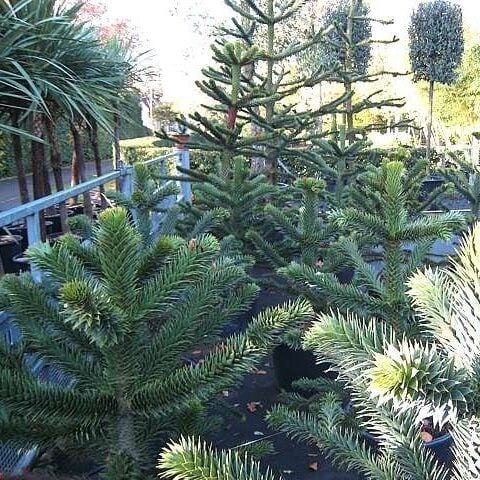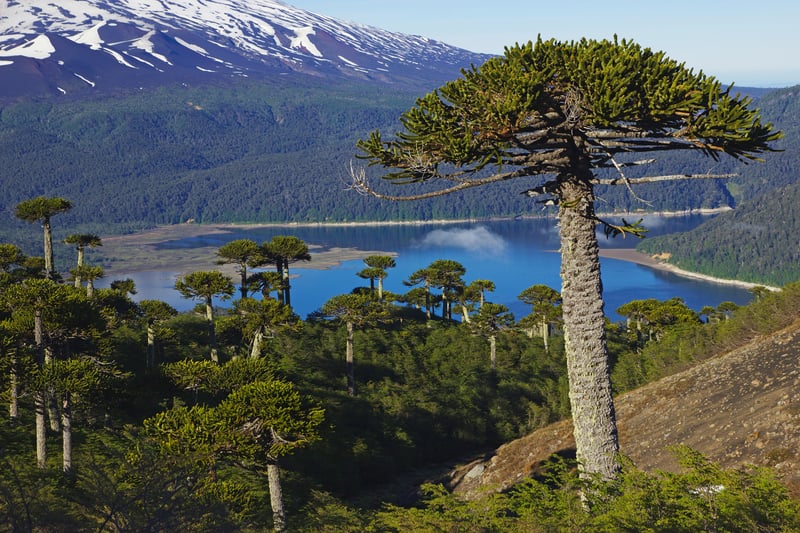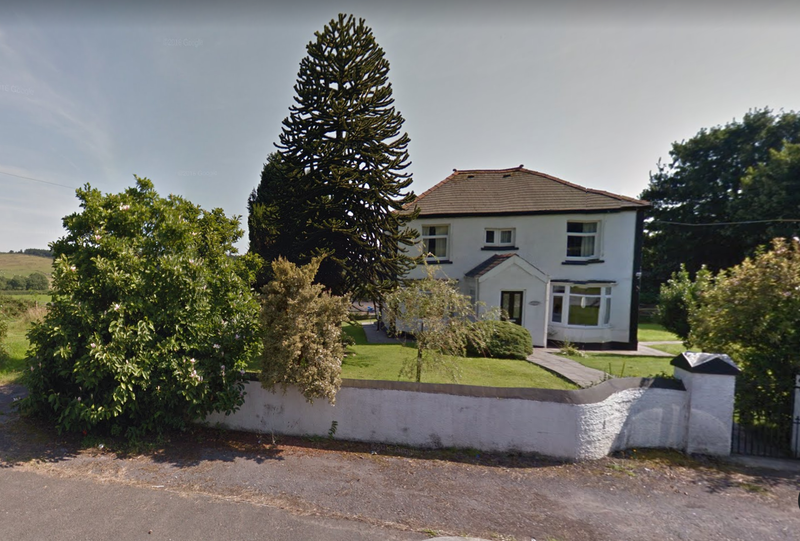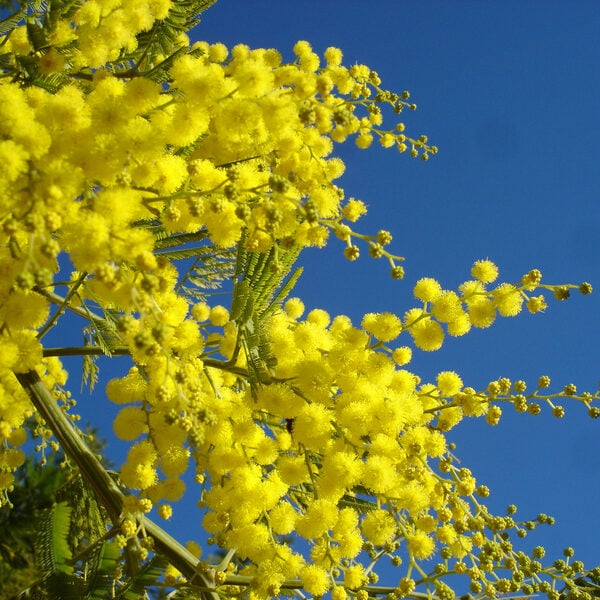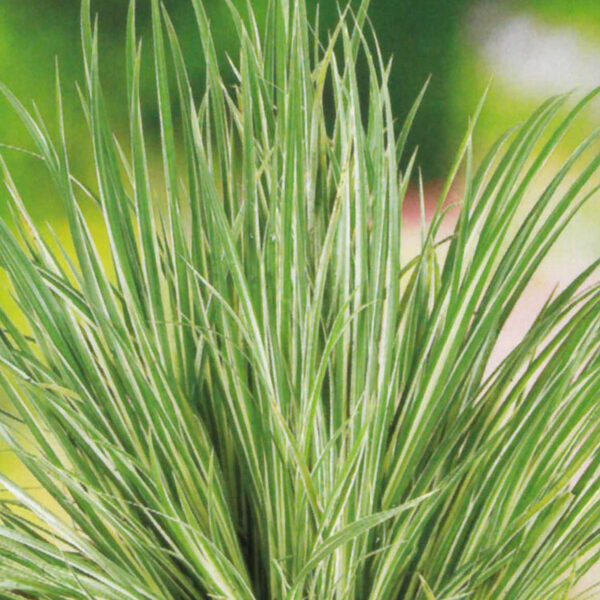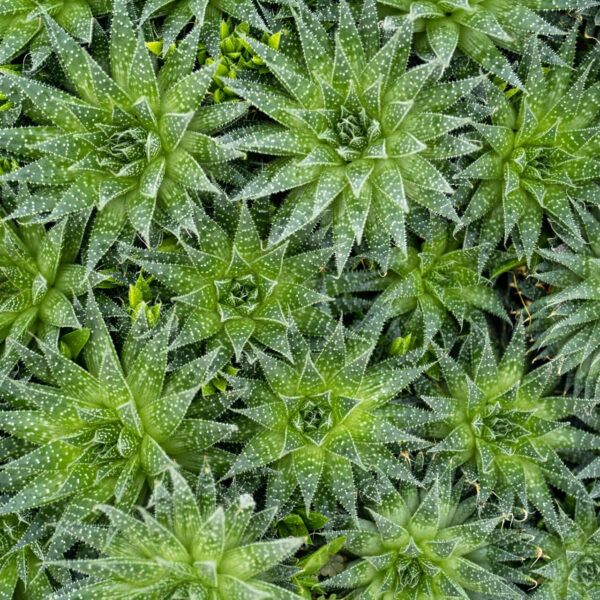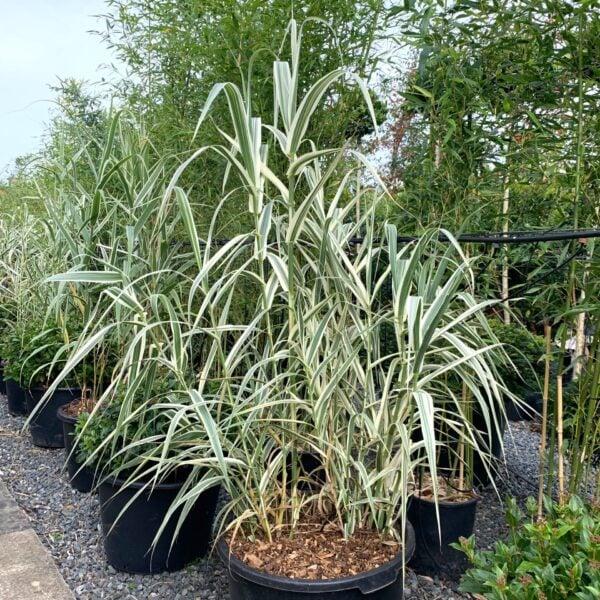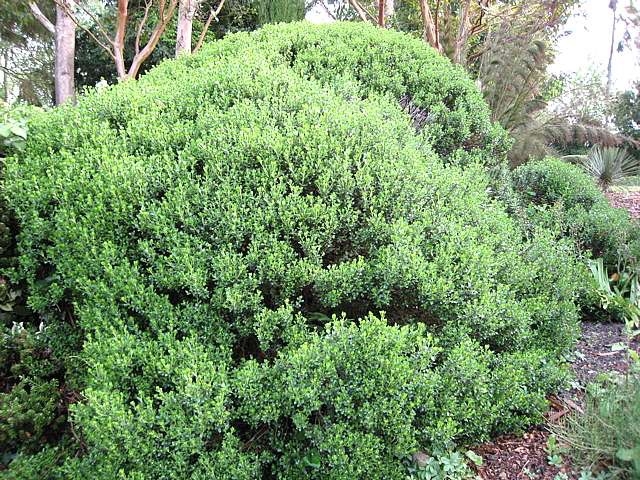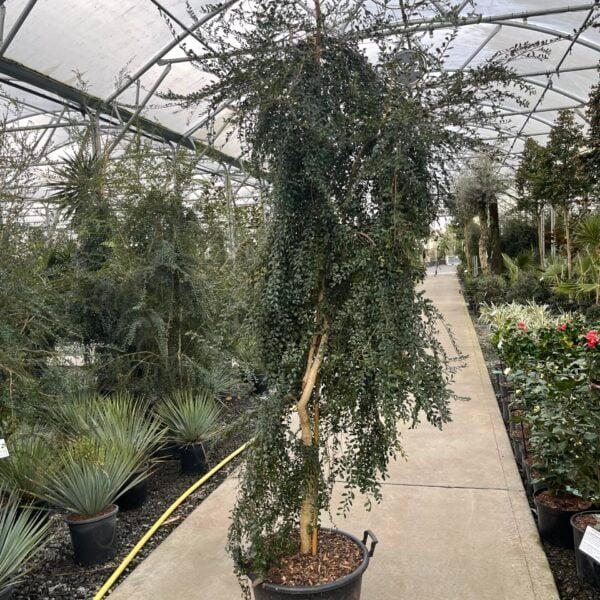Araucaria araucana (Monkey Puzzle)
The incomparable Monkey Puzzle from South America. Familiar, primitive, weird and utterly unpredictable in its growth rate. 20 ft in 20 years is about average. Please contact us for stock availability and sizes.

Hardiness level Green
Loved and hated in equal measure, primitive and unpredictable. Unpredictability seems a hall mark of the primitive and when we describe a plant as primitive it's because there's fossil evidence to tell us that the plant we know hasn't evolved for several million years. Horticultural Coelacanths. There's an avenue at Bicton Horticultural College near Sidmouth which demonstrates most eloquently why it's not really suitable for an avenue as every single tree is a different shape and a different size. Try them as a grove - works wonders. The seeds are delicious but try not to eat them - give them to us instead and we'll turn them into trees. Dr Menzies was surgeon on the Discovery with Capt. Cook when they visited Chile in the 1770s. He was given some seed for his pudding at a dinner party but instead of eating them, stuffed them in his pocket and grew some seedlings. These are said to be the first introduction of the tree to Britain. They are happy in sun or shade but - as with most plants - will form a better shape when in full sun.
An observation about their behaviour in Britain : the further north and west one goes, the longer they seem to hang on to their old branches. Beautiful old trees in the Lake District and Scotland often have the appearance of enormous bells - the lower branches spreading out near the ground to give the characteristic bell shape. In Tuscany - and even in South East England, the old branches seem more ready to die and fall off - giving a rounded head but with more trunk visible and making the bell shape less noticeable. They're not naturally a marine species but are so tough they seem to be able to take almost any amount wind and salt and survive. Old ones above the exposed beach at Portmeirion in North Wales and on Tresco in the Isles of Scilly are testament to this toughness. They look a bit ravaged but still they survive. I remember a fine specimen near a cliff top in south Torquay - benefiting from the fact that Torbay is east facing and therefore less exposed to the constant battering of the south westerly gales but still a surprising place to find a Monkey Puzzle tree. Cool, wet summers with long day length seem to be more to their liking that hot dry summers.
Propagated by us from seed from Devon.
Last photo courtesy of google street view - Pembrokeshire.
N.B. When clipping several plants with the same tool, have a bucket containing a 5% bleach solution and swish your blades around for 30 seconds between plants to sterilise them. This will help avoid the chance of cross contamination of disease.
As with all woody plants, plant high, exposing as much of the taper at the base of the trunk as possible. Allowing soil to accumulate round the base of a tree can be fatal. Keep very well watered when first planted.
Additional Information |
|
|---|---|
| Soil Type | |
| Light | |
| Plant Type | Big Leaves / Exotics, Evergreen, Grown by Us, Screening Plants, Trees |
| Continent of Origin | |
| Specialist Plants | |
| Features | |
| Tree Size | |
| Situation | Coastal, Exposed (To wind and sun), Mild City Gardens, Sheltered Garden |
| Flower Colour | |
| Hardiness | |




